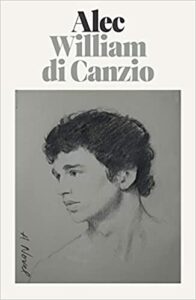
One weekend he meets Maurice, who is a guest of the owner. Intellectually curious, yet hobbled by Britain’s highly stratified social class system, Alec forgoes university and takes a job as a groundskeeper at an English estate. Alec, hailing from a working-class family in Wales, grows into a strappingly handsome youth (“with the beauty of a Giorgione” as Di Canzio describes him) who cannot understand why he is attracted to other young men. After all, being gay had been a crime in the UK up until 1967, and it was not exactly a walk in the Ramble anywhere else, either.įifty years later, in somewhat more enlightened times, William Di Canzio has written “Alec,” which tells the story of the relationship-but this time, from the groundskeeper’s POV. Homophobic critics condemned the novel, hating the sin even more than the book itself.


Forster’s novel about the love affair between Cambridge-educated Maurice Hall and Alec Scudder, a groundskeeper on an English estate. In 1971, the literary world was turned on its bowler-clad head by the posthumous publication of “Maurice,” E.M.


 0 kommentar(er)
0 kommentar(er)
